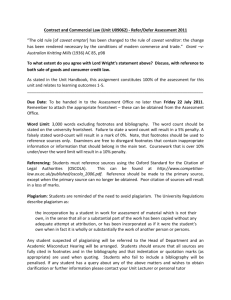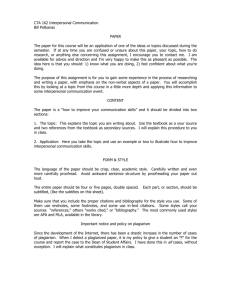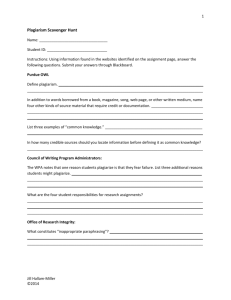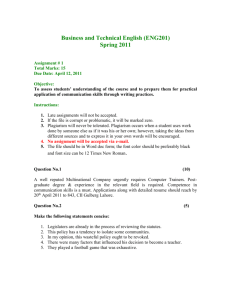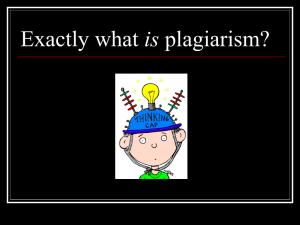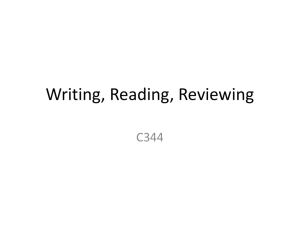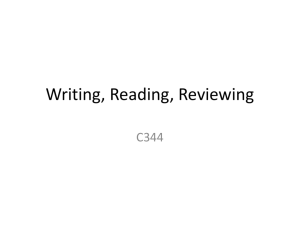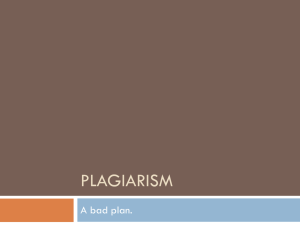About Plagiarism and University Level Writing
advertisement
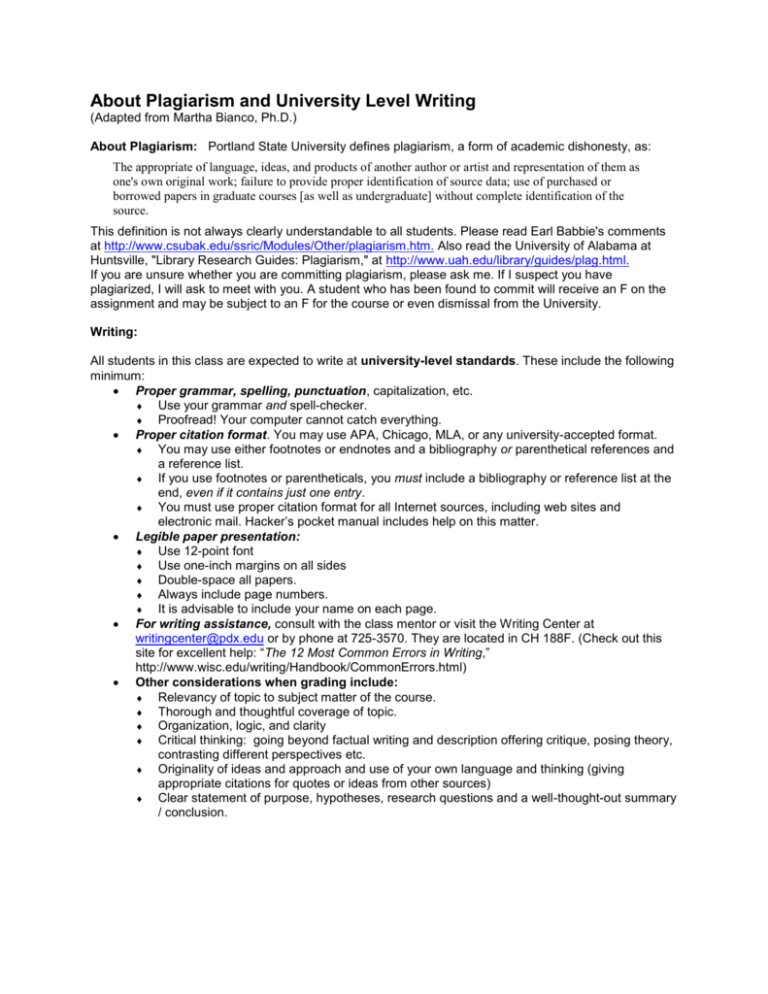
About Plagiarism and University Level Writing (Adapted from Martha Bianco, Ph.D.) About Plagiarism: Portland State University defines plagiarism, a form of academic dishonesty, as: The appropriate of language, ideas, and products of another author or artist and representation of them as one's own original work; failure to provide proper identification of source data; use of purchased or borrowed papers in graduate courses [as well as undergraduate] without complete identification of the source. This definition is not always clearly understandable to all students. Please read Earl Babbie's comments at http://www.csubak.edu/ssric/Modules/Other/plagiarism.htm. Also read the University of Alabama at Huntsville, "Library Research Guides: Plagiarism," at http://www.uah.edu/library/guides/plag.html. If you are unsure whether you are committing plagiarism, please ask me. If I suspect you have plagiarized, I will ask to meet with you. A student who has been found to commit will receive an F on the assignment and may be subject to an F for the course or even dismissal from the University. Writing: All students in this class are expected to write at university-level standards. These include the following minimum: Proper grammar, spelling, punctuation, capitalization, etc. Use your grammar and spell-checker. Proofread! Your computer cannot catch everything. Proper citation format. You may use APA, Chicago, MLA, or any university-accepted format. You may use either footnotes or endnotes and a bibliography or parenthetical references and a reference list. If you use footnotes or parentheticals, you must include a bibliography or reference list at the end, even if it contains just one entry. You must use proper citation format for all Internet sources, including web sites and electronic mail. Hacker’s pocket manual includes help on this matter. Legible paper presentation: Use 12-point font Use one-inch margins on all sides Double-space all papers. Always include page numbers. It is advisable to include your name on each page. For writing assistance, consult with the class mentor or visit the Writing Center at writingcenter@pdx.edu or by phone at 725-3570. They are located in CH 188F. (Check out this site for excellent help: “The 12 Most Common Errors in Writing,” http://www.wisc.edu/writing/Handbook/CommonErrors.html) Other considerations when grading include: Relevancy of topic to subject matter of the course. Thorough and thoughtful coverage of topic. Organization, logic, and clarity Critical thinking: going beyond factual writing and description offering critique, posing theory, contrasting different perspectives etc. Originality of ideas and approach and use of your own language and thinking (giving appropriate citations for quotes or ideas from other sources) Clear statement of purpose, hypotheses, research questions and a well-thought-out summary / conclusion.
